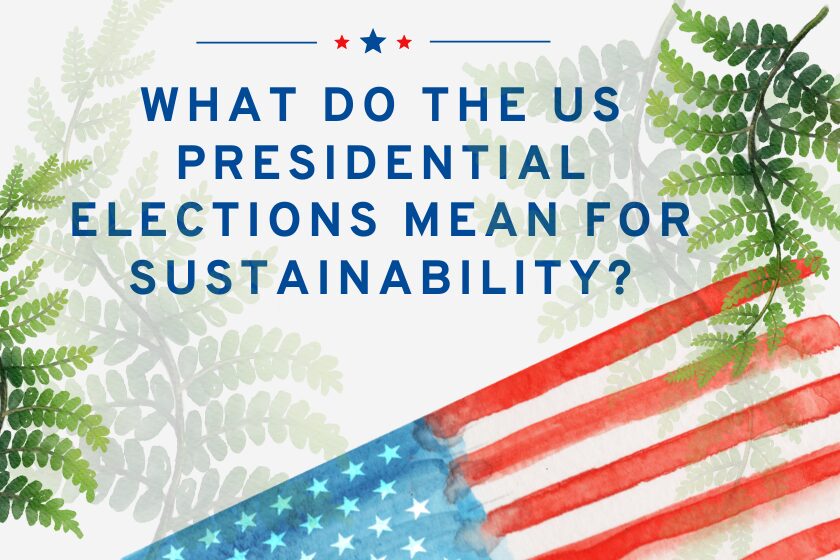What the 2024 US Presidential Elections mean for sustainability is a possible far-reaching green domestic and global policy shift. As we approach November 2024, sustainability leaders should be prepared for potentially significant climate trends and regulations changes. Here’s a breakdown of what to expect from each candidate and what the US Presidential Election means for sustainability strategies.
Kamala Harris: Aggressive Climate Action and Green Investments
Kamala Harris represents a continuation of the current administration’s climate priorities.
Although Kamala Harris has yet to release an official policy plan, her platform is likely to encompass ambitious goals like achieving net-zero emissions by 2050. She is on track to continue the current government’s policies in advancing clean energy initiatives, and creating millions of green jobs. In addition, industries can expect an emphasis on environmental justice, decarbonization, and investment in renewable energy. Along with this, Harris will surely focus on ensuring that marginalized communities disproportionately impacted by climate change benefit from federal climate policies.
Undoubtedly, for sustainability leaders, a Harris presidency could mean increased opportunities in renewable energy markets. In particular, electric vehicle infrastructure and green technology innovation can expect green growth. Her administration would likely push for stronger regulations around emissions. However, the private sector can also expect to see more public-private partnerships to accelerate the transition to a low-carbon economy.
Donald Trump: Market-Driven Solutions and Energy Independence
Donald Trump’s approach to sustainability is rooted in fostering economic growth and maintaining energy independence.
Particularly, his policies would likely reduce regulatory restrictions on fossil fuel industries while encouraging market-driven sustainability initiatives. Trump’s past support for deregulation and fossil fuel expansion suggests his energy policy will continue to prioritize traditional energy sectors.

For sustainability professionals, a Trump presidency could open avenues for innovation within existing industries, emphasizing energy efficiency and improvements in resource management. The private sector may lead sustainability efforts in such a scenario, with businesses developing their own strategies for reducing carbon footprints.
The Inflation Reduction Act (IRA) and the CHIPS Act might remain intact, focusing on industrial policy rather than aggressive climate measures. Sustainability professionals may see fewer stringent ESG reporting requirements, and businesses might take the lead in developing their own strategies for reducing carbon footprints.
Looking Ahead
Regardless of the outcome of the 2024 election, sustainability remains a critical issue that will shape business operations and policies for years to come. Until the New President of the United States of America is chosen, states are continuing to advance new high-impact legislations. Join the CSE Network to stay informed about government-led initiatives, private-sector innovations, and policy developments, and adjust your strategies accordingly.
Prepare for development in sustainability regulations and policy in North America by enrolling in Canada’s Sustainability & ESG Course.







